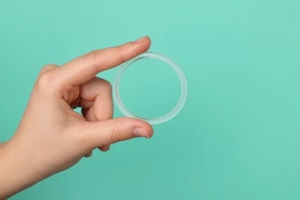 When it comes to contraception, hormonal options often get most of the attention. Methods such as the pill, patch, ring, shot, and hormonal IUDs rank among the most popular types of birth control.
When it comes to contraception, hormonal options often get most of the attention. Methods such as the pill, patch, ring, shot, and hormonal IUDs rank among the most popular types of birth control.
But hormonal contraceptives aren’t for everyone. You may wish to avoid synthetic hormones or can’t use them due to certain health conditions. Or if you’re nursing, progestin-only choices have limitations.
Luckily, effective non-hormonal contraceptive care alternatives exist. Keep reading to learn all about your hormone-free birth control possibilities.
Barrier Methods Put a Block Between Sperm and Egg
Barrier contraceptives create a physical impediment to stop sperm from meeting an egg. These options don’t alter your natural hormonal balance in any way.
Barrier methods include condoms, diaphragms, cervical caps, sponges, and spermicidal gels/creams. You use them only when you have sex. So, unlike hormonal birth control, they don’t require daily, weekly, or monthly dosing.
What barrier contraceptives lack in “set it and forget it” convenience, they make up for in safety and ease of use.
Condoms
The male condom and female condom rank among the most familiar barrier methods. Male condoms fit over the penis during sex. Female condoms slide into the vagina before intercourse. Both keep sperm from getting past the cervix to the uterus.
With perfect use, male latex condoms are 98% effective at preventing pregnancy. But it’s easy to make mistakes, so real-world effectiveness drops to about 85%.
Female condoms offer 95% effectiveness with perfect use and 79% with typical use. So, while not quite as reliable as some hormonal options, they provide decent pregnancy prevention when properly used.
Condoms also guard against sexually transmitted infections (STIs). Using them, along with another contraceptive, boosts defense against both pregnancy and STIs.
Diaphragms and Cervical Caps
Shaped similarly to small shallow cups, the diaphragm and cervical cap also barricade the cervix during sex. You insert them ahead of time along with spermicide to immobilize sperm.
Diaphragms can stay in for up to 24 hours, while most caps remain in place for up to 48 hours. But you’ll need to add more spermicide if you are having sex again before taking them out.
With perfect use of the diaphragm, the failure rate is around 6%. However, irregular use results in a much higher 17% failure rate.
Cervical caps have perfect/typical use failure rates of 14% and 29% for women who haven’t given birth vaginally. For those who have, it jumps to 20% and 40% due to changes in cervical anatomy.
Spermicides
![]() Spermicides contain chemicals that prevent pregnancy by disabling sperm. They come as creams, gels, foams, and more. You insert spermicide deep into the vagina minutes before intercourse.
Spermicides contain chemicals that prevent pregnancy by disabling sperm. They come as creams, gels, foams, and more. You insert spermicide deep into the vagina minutes before intercourse.
Options such as films, inserts, and suppositories begin melting immediately to coat the cervix. Used alone, spermicides have a high failure rate of around 28%.
So doctors recommend pairing them with barrier methods such as condoms or diaphragms. This provides back-up support resulting in greater reliability.
Sponges
The contraceptive sponge resembles a small round cushion with indentations to grip the cervix. It stops sperm via a physical barrier along with embedded spermicide.
Unlike condoms or caps, you can insert a sponge hours before instead of right before sex.
For women who haven’t had a vaginal birth, the failure rate runs around 9% with perfect use, 14% with average use.
But for those who’ve given birth, the odds of getting pregnant spike to 20-22% due to cervical changes after delivery. Sponges should only be kept in for up to 30 hours to protect efficacy.
Phexxi Gel Provides On-Demand Prevention
Phexxi is a non-hormonal prescription gel used right before sex each time you want protection. This contraceptive care option contains lactic acid, citric acid, and potassium bitartrate to alter vaginal pH. This stops sperm mobility, so they can’t swim to meet an awaiting egg.
As a fast-acting, on-demand choice taken only when needed, Phexxi seems convenient. However, to achieve 93% effectiveness, you must use it perfectly — and timing matters.
So, typical use results in around 86% reliability, making it less foolproof. But Phexxi causes no systemic side effects since ingredients stay locally in the vagina. And it won’t counteract birth control pills or patches if used together.
Long-acting Solutions Offer Set-it-and-Forget-It Ease
Methods such as condoms, diaphragms, and spermicide require taking action with every single act of intercourse to work right.
For those wanting contraception, they don’t have to think about it too often; more lasting nonhormonal alternatives exist. Options such as the Paragard IUD provide set-it-and-forget-it pregnancy prevention for years after insertion.
Paragard IUD
This small T-shaped device goes inside the uterus to prevent pregnancy without any hormones. Made of flexible plastic and copper wire, Paragard triggers inflammation that damages sperm and eggs.
So, it can prevent pregnancy for up to 10 years after placement — longer than any birth control implants or shots. Less than 1% of Paragard users get pregnant each year.
While periods often get longer, heavier, and crampy, many embrace this tradeoff for effective, hassle-free protection. Side effects typically resolve within 3-6 months as the body adjusts. Whenever ready to conceive, Paragard can be removed to restore fertility immediately.
Sterilization
Tubal ligation and vasectomy offer permanent sterilization options for women and men. These surgical procedures sever or block the fallopian tubes and vas deferens ducts that transport eggs and sperm.
 Both alternatives provide close to 100% lifelong pregnancy prevention without affecting hormones or sexual function.
Both alternatives provide close to 100% lifelong pregnancy prevention without affecting hormones or sexual function.
The catch is that reversing these processes to have kids again doesn’t always succeed. So sterilization only makes sense for those who have finished growing their families. Counseling beforehand ensures you fully grasp the permanency before proceeding.
Access Contraceptive Care Expertise at Raleigh Gynecology & Wellness
Deciding which contraceptive method fits your lifestyle best can feel overwhelming initially. And effectiveness rates based on “perfect” versus “typical” use make interpreting reliability confusing.
That’s why consulting a professional makes sense when weighing nonhormonal birth control pros and cons. Raleigh Gynecology & Wellness’ compassionate healthcare experts offer insight guiding you toward the right contraceptive solutions for your situation.
Through listening and asking questions, together we’ll narrow choices most likely to work well for your needs.
We take time explaining options fully so you understand effectiveness, ease of use, side effects and ongoing considerations before committing. Contact us today at (919) 636-6670 or online to schedule a contraceptive care consultation.
